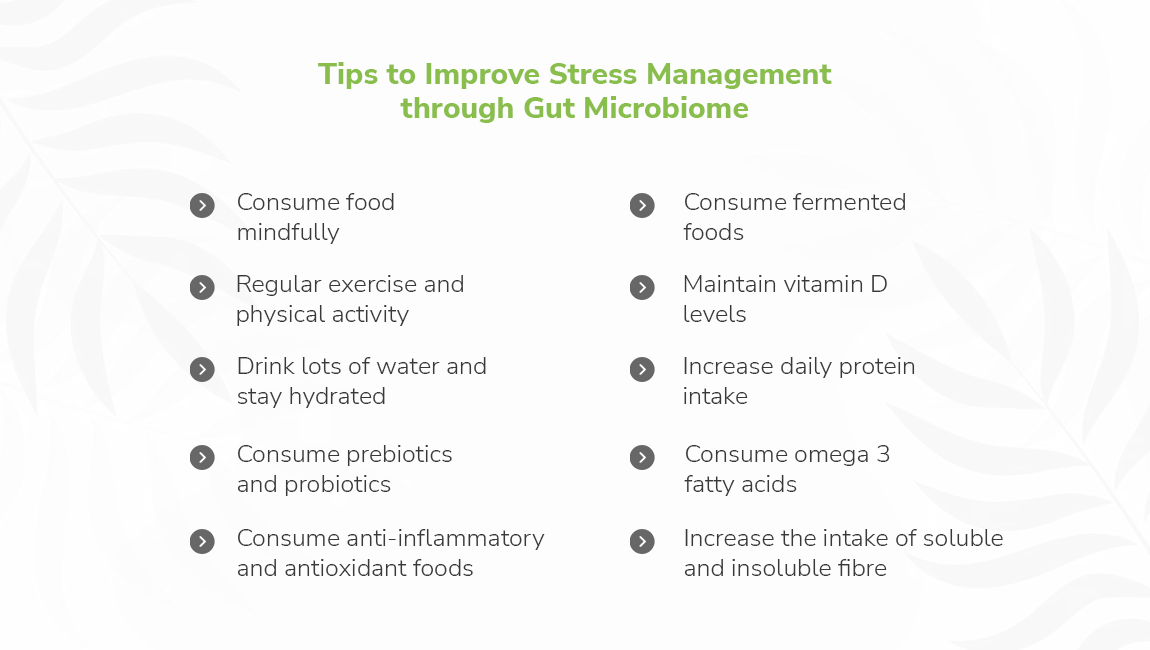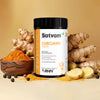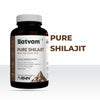Ever wondered what it means to have a gut feeling? From where do those butterflies come to fly in your stomach? Why do certain stressful situations make you feel nauseous or uneasy in the gut?
These are the sensations that emerge from the gut and suggest that there is a gut-brain connection. More so, the gut is considered the second brain of the body that affects brain health and vice versa. Scientists have found that there are underlying links between one’s digestion, stress levels, moods, and even the way of thinking.
Read the blog to understand all about the gut-brain connection and how eating right can help you manage stress and brain health effectively.
What is the Gut-Brain Connection?
Human gut bacteria have evolved in several ways to form a connection and communication with the human brain. The gut’s brain, also known as the enteric nervous system (ENS), is formed of 100 million nerve cells lining the gastrointestinal tract, right from the oesophagus to the rectum. This communication network between gut and brain is known as the gut-brain axis. There is a physical as well as biochemical connection between both the organs wherein they send signals to each other.
For instance, the thought of your favourite food sends a signal to the gut that releases stomach juices. Similarly, a troubled gut can send a signal to the brain and cause stress or anxiety. This is especially seen in individuals suffering from gastrointestinal issues with no physical cause. In such cases, the emotional and mental aspects are the main causes of gastrointestinal disorders.
Understanding the Gut-Brain Connection Better
According to researchers, both the brains of the human body talk to each other. Several psychological interventions like cognitive behavioural therapy can help improve communications between both the brains. But first, let us understand better how they are connected to each other.
The gut and brain are connected by several neurotransmitters, neurons, and the vagus nerve. Neurotransmitters are the chemicals that connect these organs. The neurotransmitters in the brain control emotions and feelings, while the neurotransmitters produced by the gut microbiome help manage anxiety and fear. Neurons are part of the brain and central nervous system that sends signals and commands to the body to perform several functions. But did you know that the gut contains neurons too?
There are over 500 million neurons in the gut that are connected to the brain through the nervous system. One of the biggest nerves of the nervous system that connects the gut and brain is the vagus nerve. It works as a communication link between the gut and brain and sends signals in both the directions. Research has shown that Crohn’s Disease and irritable bowel syndrome (IBS) are associated with impaired vagus nerve function. Furthermore, the gut microbes produce chemicals that have a direct impact on the brain.
Bodily Functions Affected by Gut-Brain Axis
The nervous system works closely with the body’s endocrine system to produce hormones that contribute to the feelings of stress, hunger, and satiety. This is why you tend to either eat more or not have an appetite at all when in stress. Moreover, it also aids the body’s immune system to keep the gut disease and injury-free. Interestingly, the nervous system is also associated with food-related feelings like cravings and food preferences.
Conditions Associated with Gut-Brain Communication
There are several physiological and psychological conditions related with poor gut-brain connection. Here is a list of disorders associated with hampered gut-brain communication:
Physiological disorders
- Chronic pain
- Chronic fatigue
- Obesity
- Irritable bowel syndrome
- Functional diarrhoea/constipation
- Noncardiac chest pain
- Visceral hypersensitivity
- Anismus
- Gastroparesis
- Functional dyspepsia
- Functional dysphagia
- Nerve-related pain disorders like multiple sclerosis
Psychological disorders
- Anxiety
- Depressive disorders
- Chronic stress
- Neuro-degenerative disorders like Parkinson’s disease
- Neurodevelopmental disorders like autism
Tips to Improve Stress Management through Gut Microbiome

Keeping the gut healthy is essential to maintain brain health and manage everyday stress. Below mentioned are some of the most important tips on how to improve stress management through better gut health.
- Consume food mindfully
Trying to eat healthy every day, and avoiding junk as much as possible is the way to go for keeping the gut healthy. Prepare and plan your meals beforehand to avoid last minute order-ins. Also, while snacking between meals, consume nutritious nuts and seeds. Take your time to eat and savour every bite to facilitate better digestion.
- Regular exercise and physical activity
Regular physical activity is very important to improve overall physical, mental, and emotional wellbeing. It not only elevates mood and reduces stress, but also aids digestion and keeps the gut happy and healthy. Go for a walk in the neighbourhood every day or maintain a workout routine for every 4-5 days a week for a healthier gut and happier you.
- Drink lots of water and stay hydrated
Boost your digestive process by drinking at least eight glasses of water every day. Avoid drinking water right before or during a meal. Refrain from drinking water for up to 45 minutes post meal to aid effective digestion.
- Consume prebiotics and probiotics
Keeping a well-maintained balance of prebiotics and probiotics in your daily diet helps keep the gut microbiome healthy and thriving. Probiotics are the bacteria that are found in fermented foods like yogurt, curd, kimchi. Prebiotics comprise of complex starch and fibre that the probiotic bacteria eat. These include nuts, whole grains, flax seeds, cabbage, garlic, and onions.
- Consume anti-inflammatory and antioxidant foods
A diet rich in plants and whole foods reduces sugar, cholesterol, and additives. It is naturally anti-inflammatory and works great to keep the gut happy and healthy. Moreover, a diet rich in antioxidants, like fresh vegetables and fruits, help prevent inflammation and fights free radicals in the body. Consume colourful fruits, dark leafy green vegetables, beans, nuts, fatty fish, and mushrooms.
- Increase the intake of soluble and insoluble fibre
Fibre is your biggest friend for effective digestion and gut health. Consuming fibre reduces inflammation and decreases oxidative stress by supporting the gut microbiota. It also helps improve overall mood and memory. Both soluble and insoluble fibres are essential for the gut to stay well-functioning as they nourish the gut lining and protect it from damage. Legumes, nuts, whole fruits and vegetables, oats, and dark chocolate are rich in fibres.
- Consume omega 3 fatty acids
Omega 3s are the body and brain must-haves. They improve cognitive function, increase memory, reduce sugar cravings, and help maintain cholesterol levels. These fatty acids enhance the good bacteria in the gut and improve brain health to reduce the risk of brain disorders. Salmon, walnuts, sardines, and flaxseeds are rich sources of omega 3 fatty acids. Consuming plant-based omega 3 supplements is a good way to kickstart your intake if you are vegan and vegetarian.
- Increase daily protein intake
Proteins are rich in nitrogen and amino acids. They helps boost the production of serotonin (happy hormone) and decrease the feeling of depression by improving mood. It limits the number of bad bacteria in the gut microbiome and regulates the feelings and thoughts. Amino acids help boost the production of neurotransmitters that are vital to send signals from one brain cell to the other, thus improving overall brain health. Eggs, chicken, broccoli, milk, fish, and yogurt are some of the foods rich in protein.
- Consume fermented foods
Fermented foods have been found to have a link with the gut-brain connection. Foods like yogurt, cheese, kimchi, sauerkraut, and kefir are associated with improving and enhancing the gut microbiome to nurture overall brain health. Latest research suggests that fermented foods are helpful in improving cognitive function and alter brain activity. They also reduce the risk of leaky gut syndrome.
- Maintain Vitamin D levels
Vitamin D is as vital for mental health as it is for physical health. It helps regulate mood and decreases the symptoms of anxiety and depression. This sunshine vitamin also reduces gastrointestinal inflammation and regulates the gut microbiota. Foods like fortified milk, tuna, and egg yolks are rich in vitamin D. Taking natural vitamin D supplement helps maintain optimal D levels in the body.
Maintain Gut-Brain Connection Naturally
Human body consists of two brains- the big brain, and the small gut brain. The gut and brain and connected physically, biochemically, and neurologically in several ways. Hence, the food you eat makes a direct impact on your mental health. Maintaining a healthy gut is one of the most significant aspects of maintaining brain and cognitive health. Satvam Nutrition Digestive Support supplement is an all-natural, chemical-free, plant-based formulation for maintaining a healthy gut.
Also, do incorporate Satvam Nutrition’s natural Repose Soothing Stress supplement in your daily routine to manage every day stress and keep gut-related concerns at bay. Consume the right foods and nourish your gut-brain axis naturally with a happy gut and healthy brain!
Stay healthy and happy naturally.

















